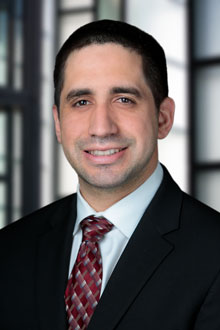On May 16, 2019, the Fourth District Court of Appeal issued its decision in Colombo v. Kinkle, Rodiger & Spriggs (May 16, 2019 G055823)__Cal.App.5th__, analyzing whether a vexatious litigant’s second attempt to submit a Request to File New Litigation before a different presiding judge is precluded by res judicata. The vexatious plaintiff’s previous Request was denied by a different judge in the same court. (Slip opn., p. 7.) The Court of Appeal ruled that the second attempt to submit the Request was precluded by res judicata. (Id. at p. 14.) A copy of the opinion is attached.
Ralph Colombo (“Colombo”) sued his attorney Andrew Pyka and Pyka’s firm Kinkle, Rodiger & Spriggs ( known collectively as “Defendants”) for malpractice in March 2012. (Slip opn., p. 4.) In 2014, Colombo dismissed his action against Defendants without prejudice after he signed a tolling agreement. (Id. at p. 5.) In 2015, pursuant to a motion made in a different case, the Superior Court of Orange County labeled Colombo a vexatious litigant, meaning he would need the permission of a presiding judge to move forward with any case. (Ibid.) On February 25, 2015, Colombo submitted his first Request to File New Litigation by a Vexatious Litigant in the superior court against Defendants. (Id. at p. 6.) It was denied by Judge Glenda Sanders because his claims were time barred by the applicable statute of limitations. (Ibid.) The superior court denied Colombo’s following motion for reconsideration and the appellate court denied his appeal. (Id. at pp. 6-7.) In July 2016, Colombo submitted another Request to File New Litigation by a Vexatious Litigant with the same complaint as the first submittal attached to it in the same superior court with a different presiding judge without mentioning the denial of his first Request. (Id. at p. 7.) It was granted, but Defendants filed a motion for judgment on the pleadings made on the grounds that the doctrine of res judicata precluded Colombo’s claim. (Id. at p. 8.) The trial court granted Defendants’ motion for judgment on the pleadings, but they did so based on the fact that Colombo’s claims were time barred. (Ibid.) The court of appeal granted Colombo’s appeal application to resolve whether Colombo’s second Request was barred by the principles of res judicata. (Ibid.)
The Fourth District Court of Appeal ruled that Colombo’s second Request was barred by res judicata. (Slip opn., p. 14.) “Res judicata bars a subsequent claim when ‘(1) the decision in the prior proceeding is final and on the merits; (2) the present proceeding is on the same cause of action as the prior proceeding; and (3) the parties in the present proceeding or parties in privity with them were parties to the prior proceeding [citation].” (Id. at p. 9; see also Planning & Conservation League v. Castaic Lake Water Agency (2009) 180 Cal.App.4th 210, 226.) “The vexatious litigant statute only permits a judge to grant a request to file ‘if it appears that [the proposed complaint or motion] has merit and has not been filed for the purposes of harassment or delay [citation].” (Slip opn., p. 10; see also (Code Civ. Proc. § 391.7, subds. (b), (d).) Judge Sanders denied the first Request because it was time barred. (Slip opn., p. 11.) This was considered a final ruling on the merits under the vexatious litigant statutory scheme. (Ibid.) The case was considered fully litigated because Colombo could have made any legal argument in support of his filing. (Ibid.) The court also ruled that public policy supports its decision. (Id. at 13.) The doctrine of res judicata is meant to minimize repetitive litigation. (Id. at p. 14.) This purpose is served by not allowing a vexatious litigant to try repeatedly to file the same case. (Ibid.) They only get one bite of the apple, and therefore any following claim will be barred by res judicata.
